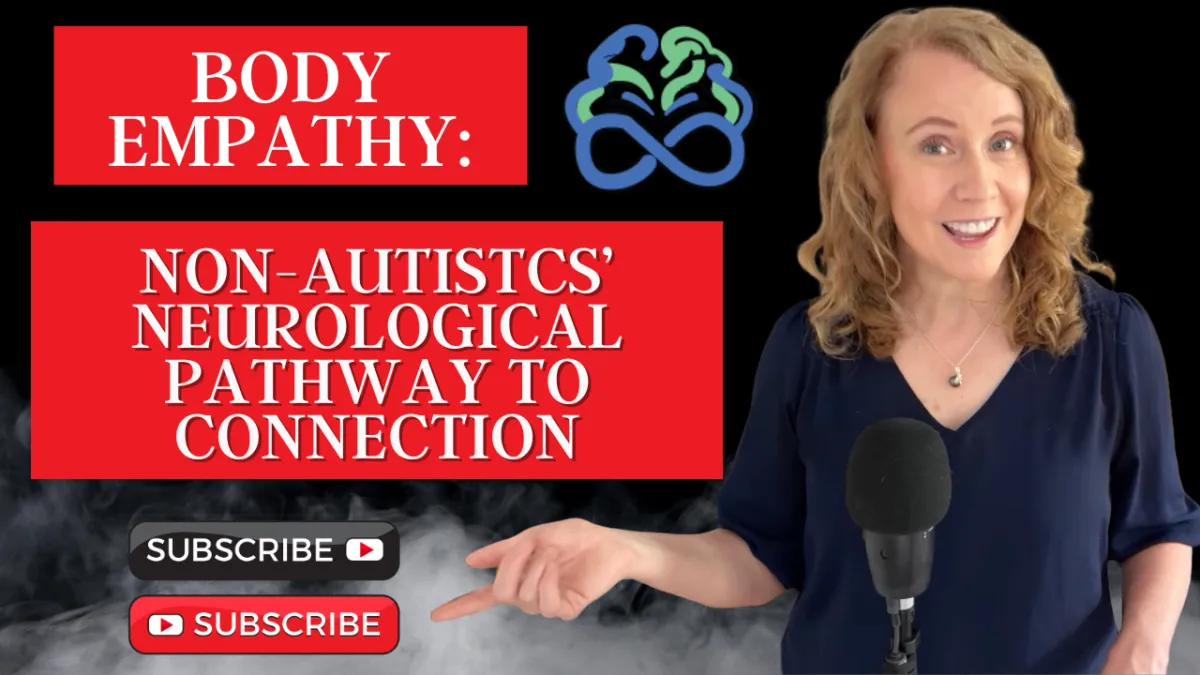
Understanding Body Empathy: The Non-Autistic Sense Supporting Connection
To better understand ourselves and the ways in which all brains function, it is essential to explore concepts that influence Neurodiverse Relationship Dynamics (NRD) (MacMillan, 2025) and that affect neurodiverse family systems. One such concept is "body empathy" (MacMillan, 2025), a sense that plays a significant role in how many of us connect with others. Body empathy, a sense akin to taste, sound, touch, smell, and sight, is deeply rooted in non-autistics' nervous systems and helps them navigate the social world in ways that are often unconscious.
Body Empathy Requires Embodied Simulation and Interoception
There are two components to body empathy: 1) embodied simulation, and 2) interoception (MacMillan).
Embodied simulation can be understood as the ability to internally simulate the actions of others, allowing us to experience, in part, what another person is experiencing (Gallese, 2007). Embodied simulation is facilitated by what neuroscientists refer to as the "mirror neuron system." Embodied simulation allows us to observe someone else performing an action, whether it's a non-autistic or autistic individual, specific neurons in our brains fire as if we were performing the action ourselves. This mirroring process is not just limited to visual observation; it can also occur through auditory cues. For example, hearing the sound of someone running up and down the stairs can activate the neurons in our brain associated with that action, even if we are physically inactive at the time.
MacMillan (2025) hypothesizes that individuals have varying levels of embodied simulation and that, in general, non-autistics have higher levels of embodied simulation than autistics.
A future article will address interoception and its role in body empathy.
The Neuroscience Behind Embodied Simulation
The mirror neuron system is one of two fundamental components of body empathy, the other being interoception. Mirror neurons, which are distributed throughout our nervous system, enable us to create a mental simulation of another person's actions, giving us a visceral understanding of their experience. This internal simulation is not merely a cognitive function; it involves the entire body, as our whole-body nervous system is engaged in the process. This connection between the brain and the body underscores the embodied nature of body empathy, making it a holistic experience that transcends simple observation, cognitive processing or theory of mind.
Embodied Simulation and Social Connection
Embodied simulation provides us with an immediate and often unconscious connection to others. When we witness someone else's actions, whether through sight or sound, our mirror neuron system activates, allowing us to empathize with their physical experience. This connection is particularly significant in social interactions, where understanding the physical and emotional states of others can enhance communication and strengthen relationships. For non-autistic individuals, body empathy plays a crucial role in fostering social bonds, as it enables them to intuitively grasp the experiences of others.
Implications of Body Empathy for Neurodiverse Interactions
Understanding body empathy is not just about recognizing a fascinating neurological phenomenon; it has practical implications, especially in neurodiverse interactions. For non-autistic individuals, being aware of their body empathy can lead to a more nuanced understanding of how they connect with others, including those on the autism spectrum who may not experience body empathy in the same way. This awareness can bridge gaps in communication, fostering empathy that is informed and accurate, rather than based on assumptions that everyone perceives the world in the same way.
In conclusion, body empathy is a vital sense that connects us to the physical and emotional experiences of others. By understanding this sense, both autistics and non-autistics can better navigate our social world, improve our relationships, and approach neurodiverse interactions with a deeper sense of awareness.
Support for Professionals and Clients:
Neurodiverse Credentialing and Practice Support for Psychologists, Therapists, Social Workers, Clergy, and Domestic Violence workers is available here.
Autistic and non-autistic members of neurodiverse family systems can reach out for support here.
Resources for Further Exploration:
Read Anne MacMillan's 2025 book entitled Neurodiverse Family Systems: Theory and Practice, available for pre-order.
Read Vittorio Gallesse's 2007 article entitled "Before and Below 'Theory of Mind': Embodied Simulation and the Neural Correlates of Social Cognition" published by The Royal Society, 362(1480), doi:10.1098/rstb.2006.2002.
